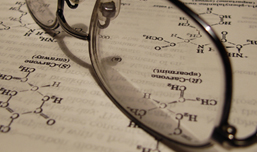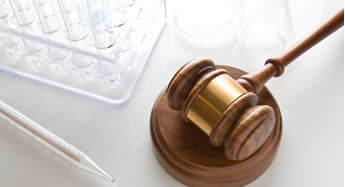The role of experts in life sciences patent litigation
The justice system and scientific method are both designed to get to the truth. Science achieves this by observing, forming a hypothesis and then testing the hypothesis with experiments in order to establish a hitherto unknown law. A legal action, on the other hand, might appear to do something like the reverse: the parties start with already established laws, apply them to a series of facts to create a hypothesis – a case – and a judge then decides which case they prefer, once the evidence that each side adduces to support the facts has been tested in court by cross-examination. It is in the nature of patent actions that most evidence will consist of the opinions of expert witnesses. This will address technical subject matter ranging from the biological and the chemical to the electronic and mechanical. Hence, rarely a day goes by in which the very different worlds of science and law do not meet in the English Patents Court.
For the experts giving evidence, whether they are from academia, industry or private consultancy, the different approaches to finding the truth that science and justice take can be a culture shock. The expert will be asked to speculate about matters that they generally cannot test, except against their own experience, and may find the questions they are asked to address artificial or even irrelevant.  Above all, in a UK patent case, an expert is most usually instructed by one of the parties to the dispute (as opposed to the court). This has the inevitable result that each party has exclusive control over the expert they instruct. The expert is acquainted only with the party instructing them and typically has no exposure to the views of the expert on the other side of the case until evidence is served. Even then, it is unusual for the expert to have the opportunity to discuss those views with the opposing expert – the experts often only see each other for the first time at trial. As a result, even with the most objective and impartial expert there may be the risk that the process of preparing evidence is abused. For this reason, there are strict rules in place both to govern the duties of experts and to protect them, and to ensure that the process of preparing evidence is as transparent as possible.
Above all, in a UK patent case, an expert is most usually instructed by one of the parties to the dispute (as opposed to the court). This has the inevitable result that each party has exclusive control over the expert they instruct. The expert is acquainted only with the party instructing them and typically has no exposure to the views of the expert on the other side of the case until evidence is served. Even then, it is unusual for the expert to have the opportunity to discuss those views with the opposing expert – the experts often only see each other for the first time at trial. As a result, even with the most objective and impartial expert there may be the risk that the process of preparing evidence is abused. For this reason, there are strict rules in place both to govern the duties of experts and to protect them, and to ensure that the process of preparing evidence is as transparent as possible.
In a patent action, the expert is normally asked to address at least the claims of a disputed patent, pieces of prior art and the common general knowledge. The artificiality of patent law is that, having been called to give their opinion, the expert must do so as if they are standing in the shoes of an objective and notional figure that the Patents Act 1977 and European Patent Convention calls the 'man skilled in the art' (otherwise known as the 'skilled person'). Furthermore, the expert must address these matters as at the priority date of the patent. Similarly, in hearing this evidence and making its decision the court must 'don the mantle of the skilled man'.
Having adopted the role of the skilled person, the expert is permitted to give their opinion on the ultimate questions in an action which are not matters of law1. In a patent action, this includes issues such as the obviousness of a patent. However, the court is not obliged to follow the opinion of an expert. What matters is whether the opinion stands up to scrutiny when contested by opposing experts' reports and cross-examination in the witness box. What really matters to the court is that the expert has reasons for coming to the conclusion that they come to2.The purpose of the expert, in keeping with their expert duty, is thus to educate the court so that it can make decisions on questions of fact.
A recurring difficulty for the expert and those instructing them is how closely the expert's knowledge and skill needs to match that of the skilled person. If an expert is found whose skills in reality are a close match for those of the skilled person, it follows that they will probably be someone with less professional impact and credibility than a leading academic. On the other hand, leading academics and experts of similar standing are open to the accusation that they are naturally inventive and too far removed from the skilled person; the latter will be inventive and so more liable to think a disputed invention obvious. However, the court will take into account over-qualification3, and Jacob LJ has specifically said that it does not matter whether the expert only approximates to the skilled person providing they are good at explaining things4. Nonetheless, this does not mean that, all other matters being equal, it is not ideal that an expert should have personal experience of the particular technology in dispute and at the relevant period of the patent's priority date5.
On the other hand, leading academics and experts of similar standing are open to the accusation that they are naturally inventive and too far removed from the skilled person; the latter will be inventive and so more liable to think a disputed invention obvious. However, the court will take into account over-qualification3, and Jacob LJ has specifically said that it does not matter whether the expert only approximates to the skilled person providing they are good at explaining things4. Nonetheless, this does not mean that, all other matters being equal, it is not ideal that an expert should have personal experience of the particular technology in dispute and at the relevant period of the patent's priority date5.
For guidance on using or acting as an expert contact The Academy of Experts.
If you have any questions on this article or would like to propose a subject to be addressed by Synapse please contact us.
1 Routestone Ltd v Minories Finance Ltd [1997] BCC 180
2 Molnlycke AB v Proctor & Gamble Ltd (No.5) [1994] RPC 49
3 Generics (UK) Ltd v Yeda Research & Development Co Ltd [2012] EWHC 1848 (pat)
5 See, for example, Generics (UK) Limited Claimant v Daiichi Pharmaceutical Co. Ltd, Daiichi Sankyo Co. Ltd [2008] EWHC 2413 (Pat)


Paul England
Paul is a senior associate and professional support lawyer in the Patents group based in our London office.

